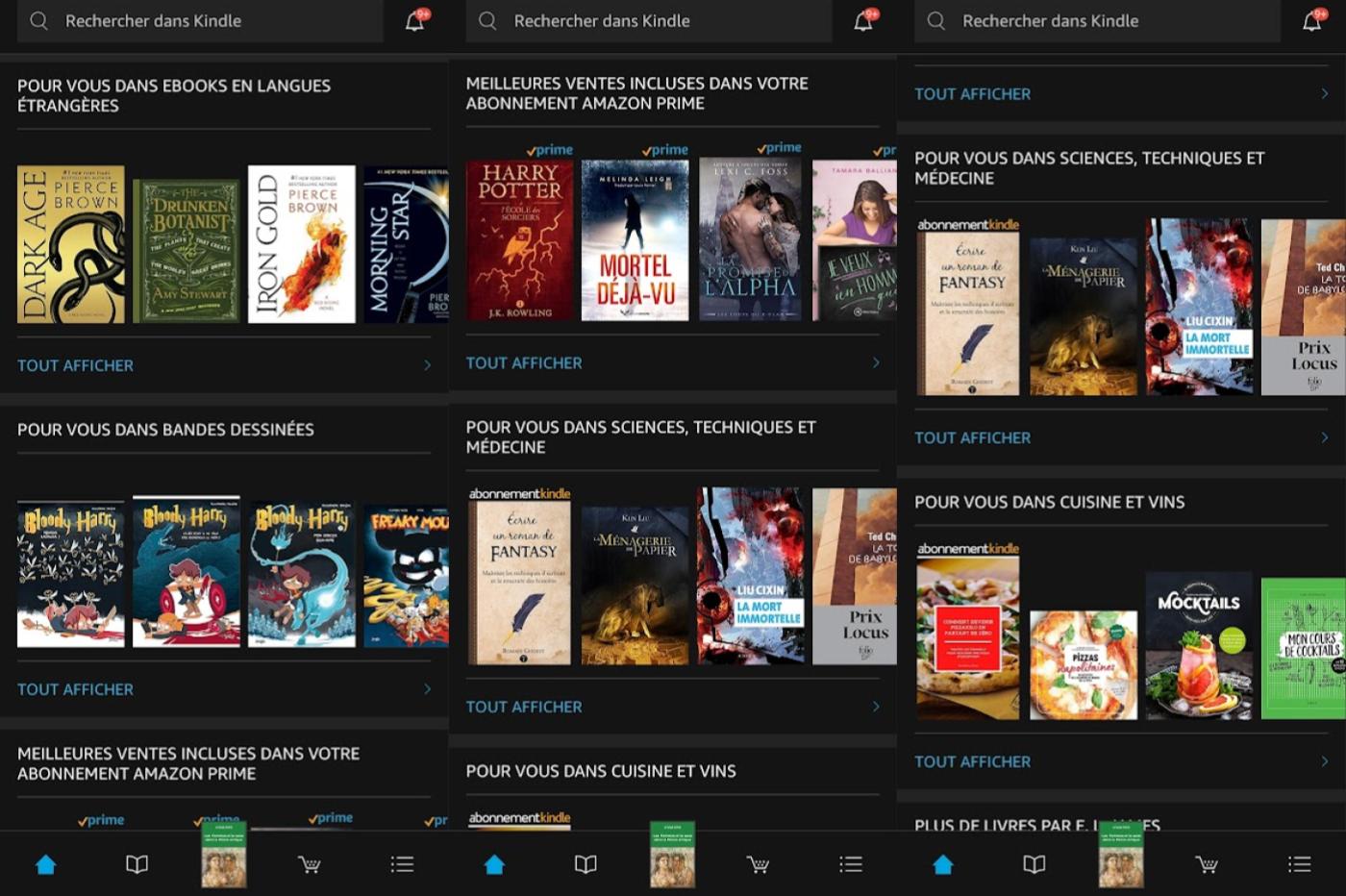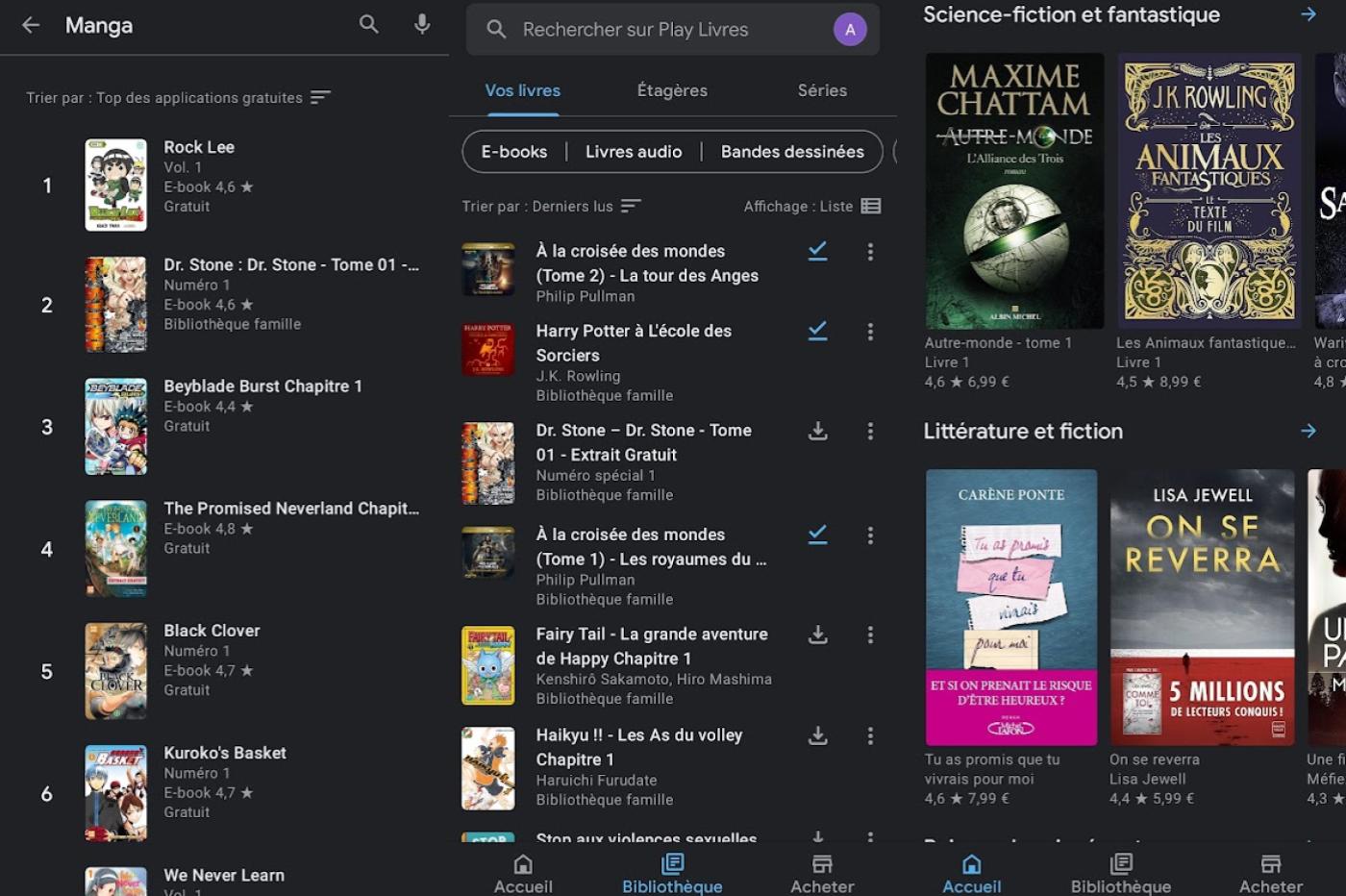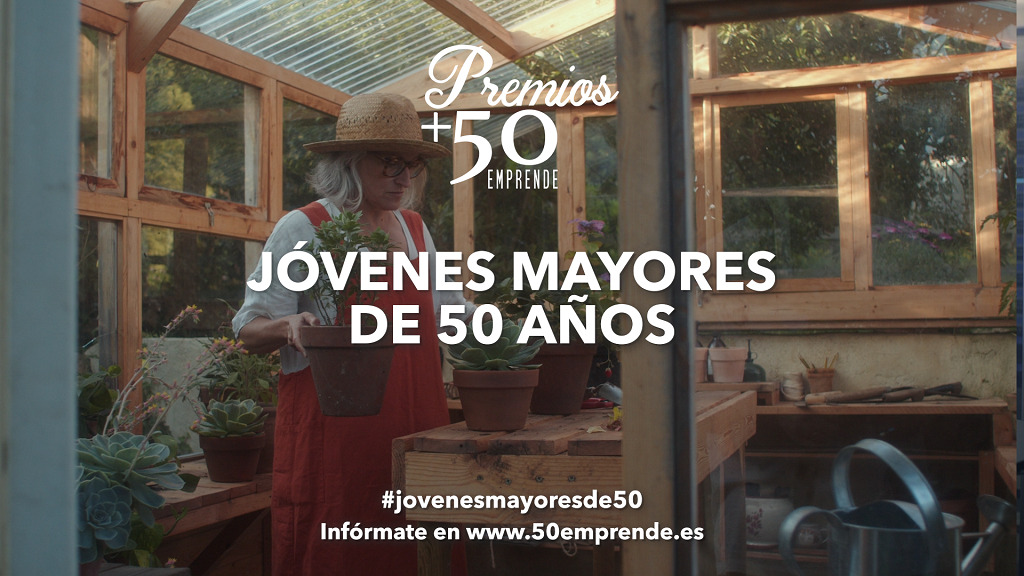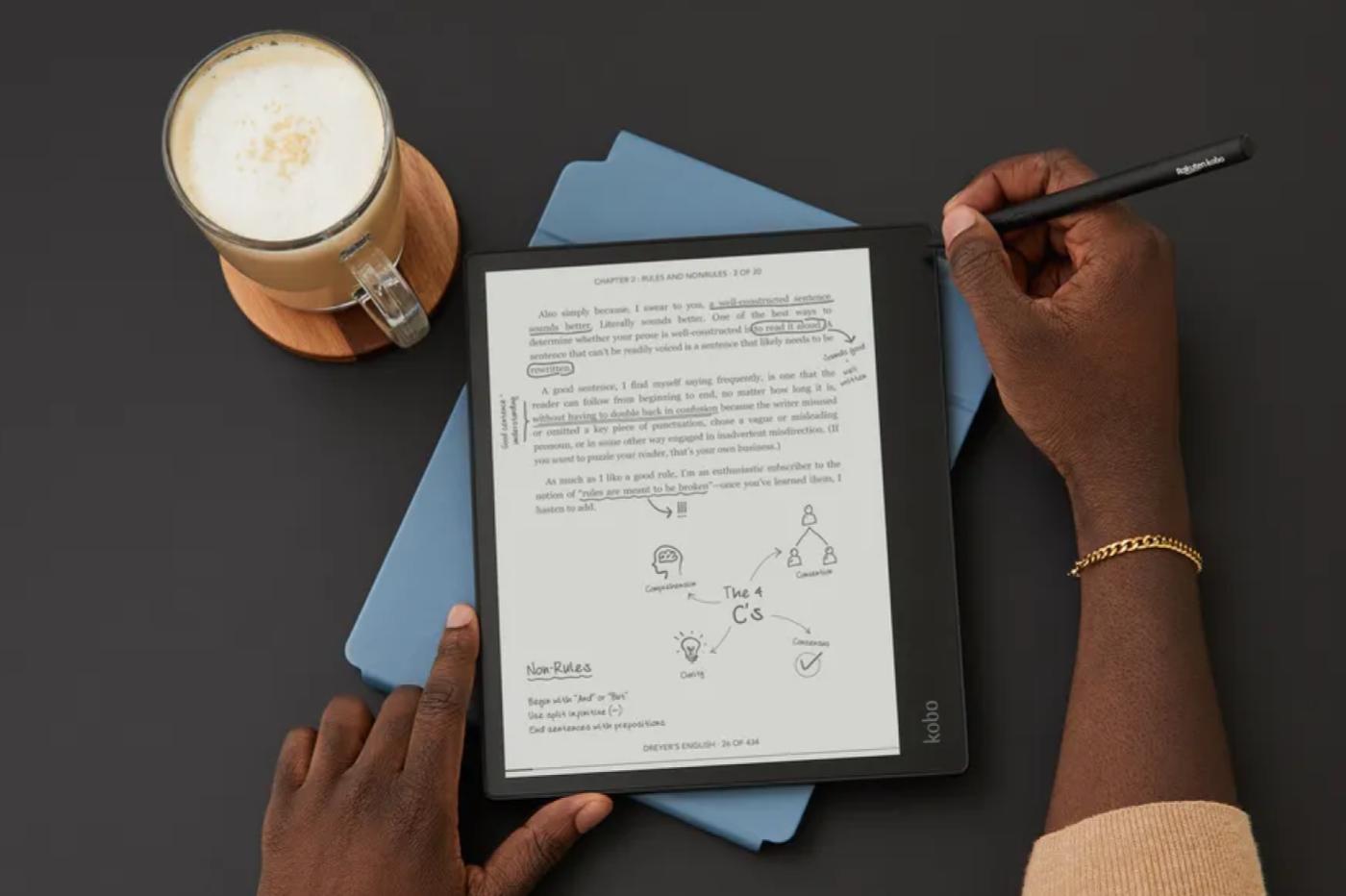
Tired of piling up dozens of books, magazines and novels gathering dust on your shelves? Want to go all digital, but don’t know where to start? We give you some advice to find your happiness.
Undoubtedly largely helped by Amazon and its first Kindle reader in 2007, ebooks have long been an exception in the literary landscape. Today, smartphone reading has become widely democratized, and it is no longer rare to leaf through your latest favorite novel on the screen. It must be said that in addition to being much more nomadic than a real book, ebooks also have several advantages : not only are they easier to annotate, but also they take up much less space on your shelves, which let’s face it, are seriously starting to overflow.
For books
You can be a paper lover, and recognize the interests of paperless reading. Because we have to admit it, if your favorite works and your most beautiful editions undoubtedly deserve to be displayed on your shelves, this is not necessarily the case of all your books. Rather than increasing the number of pocket sizes that will end up chipped, or crumbling under texts that you will only read once for studies or work, rather, keep the paper format for the essentials, and dematerialize the rest.
Regarding reading platforms, there are several, such as Google Play Books (which also offers audio books), Apple Books or even Kobo by Rakuten. If selling your soul to GAFAM does not scare us (or if you got it right), we advise you to opt for Amazon Kindle. First, because it works just as well on iOS and Android as it does on its proprietary e-readers, which allows you to read anytime, anywhere. Then because she has a one of the most imposing library on the market, that it is easy to learn, and above all, that it allowsimport PDFs directly into the application, in the highly unlikely event that Amazon does not have the expected book. The only downside is the impossibility of natively exporting books in generic epub format, in the event that you decide to change your dairy.
For comics and manga
If you don’t want to invest in a bookcase to store your massive One Piece collection – which nonetheless released its 100th book this year, you can also turn to reading comics and manga digitally. Once again, the majority of reading platforms have included them in their catalog, and some like Amazon and Google offer to discover free tomes and extracts from series. By betting on the idea that you will not be able to let go of your screen once the first pages have been devoured.
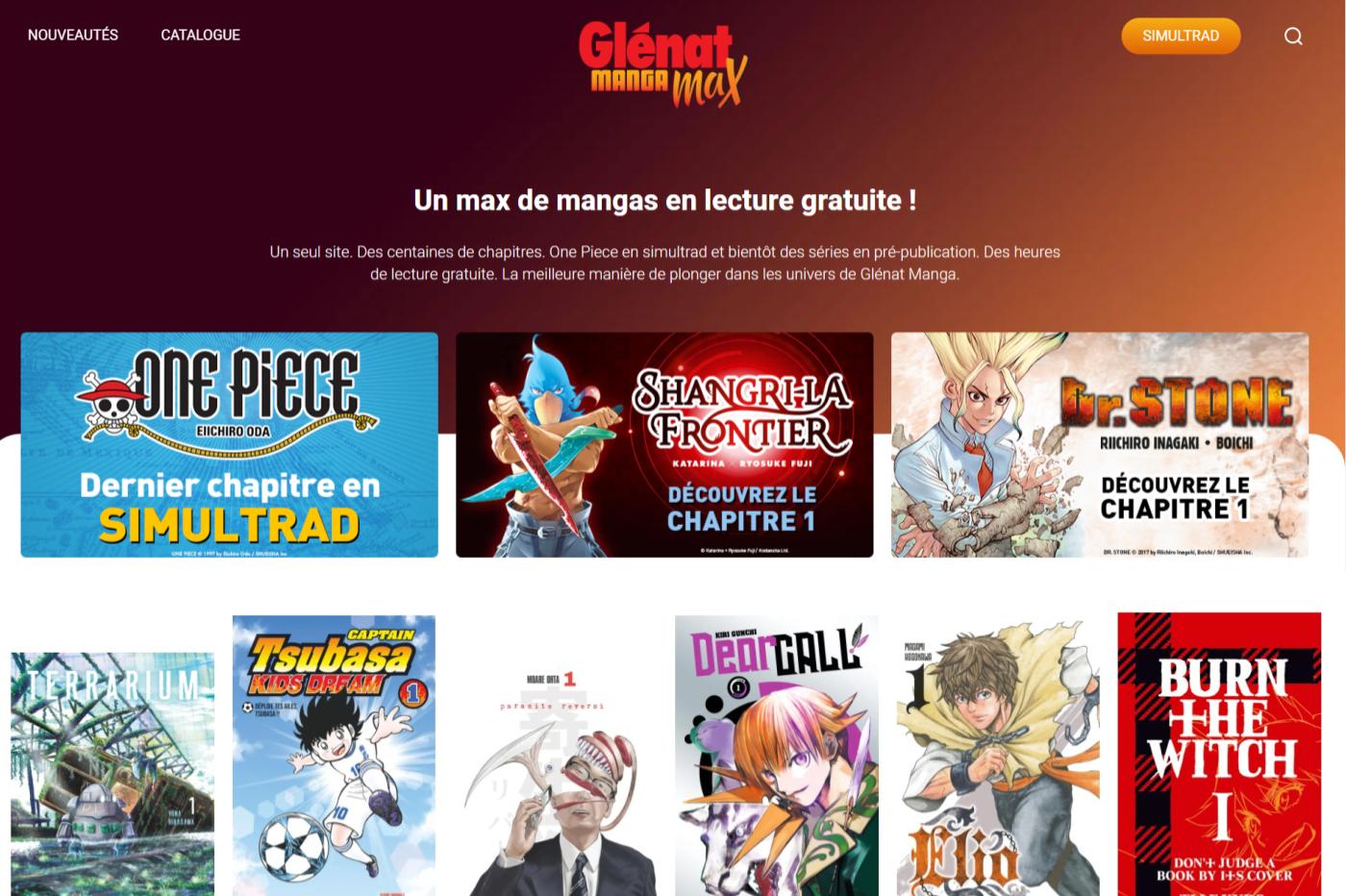
For smaller budgets, comics and manga also offer free alternatives. For Glénat aficionados, the French publisher this year launched its Manga Max platform, which offers all the first chapters of its manga catalog for free, since Shangri-La Frontier up to Dr Stone, Reprint Where Babel, our favorites for the end of the year 2021. The reissues are not left out, since it is also possible to find the first chapters of Mermaid Saga and School swept away. Finally for fans of One piece, also know that all the last chapters of Luffy’s adventures are accessible in simultrad for free, and for 15 days from their release date.
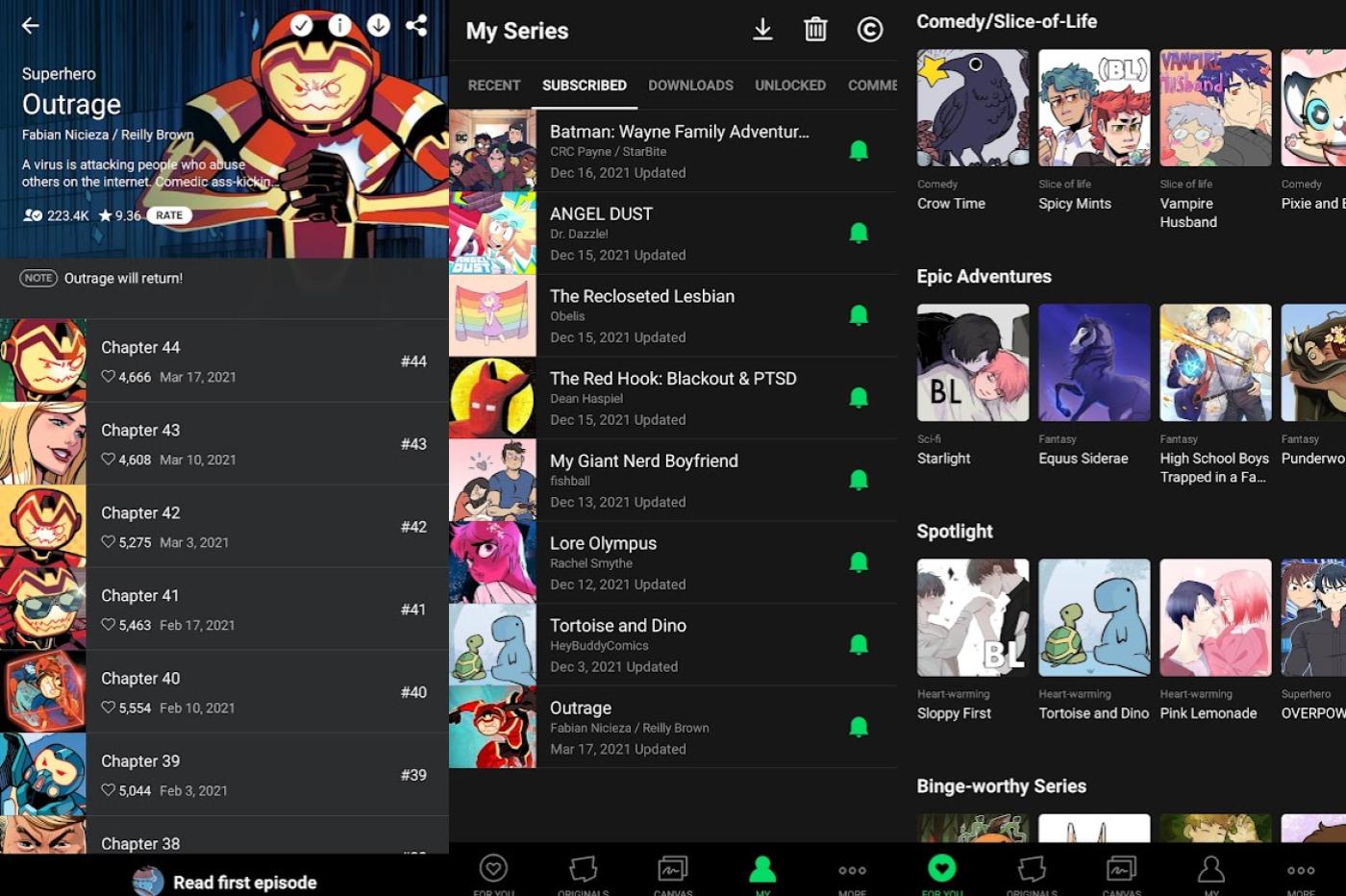
Finally, for lovers of novelty, the format webtoon It also gives you access to thousands of works, specially designed for the digital and vertical format imposed by our smartphones. Very popular in South Korea, this type of reading to nibble between two metro stops not only offers an incredibly vast and original catalog, but also foreshadows the next series which will find their place on paper, such as Otaku-Otaku, Tower Of God, Re: Life, or Olympus tradition, by Rachel Smythe, which will be released next year on Hugo BD.
Good news, if some platforms are paid, others like Webtoon for France, rely above all on a free reading, with short chapters appearing weekly. From our side, we recommend the very good Batman: Wayne Family Adventures (available only in English).
For the press
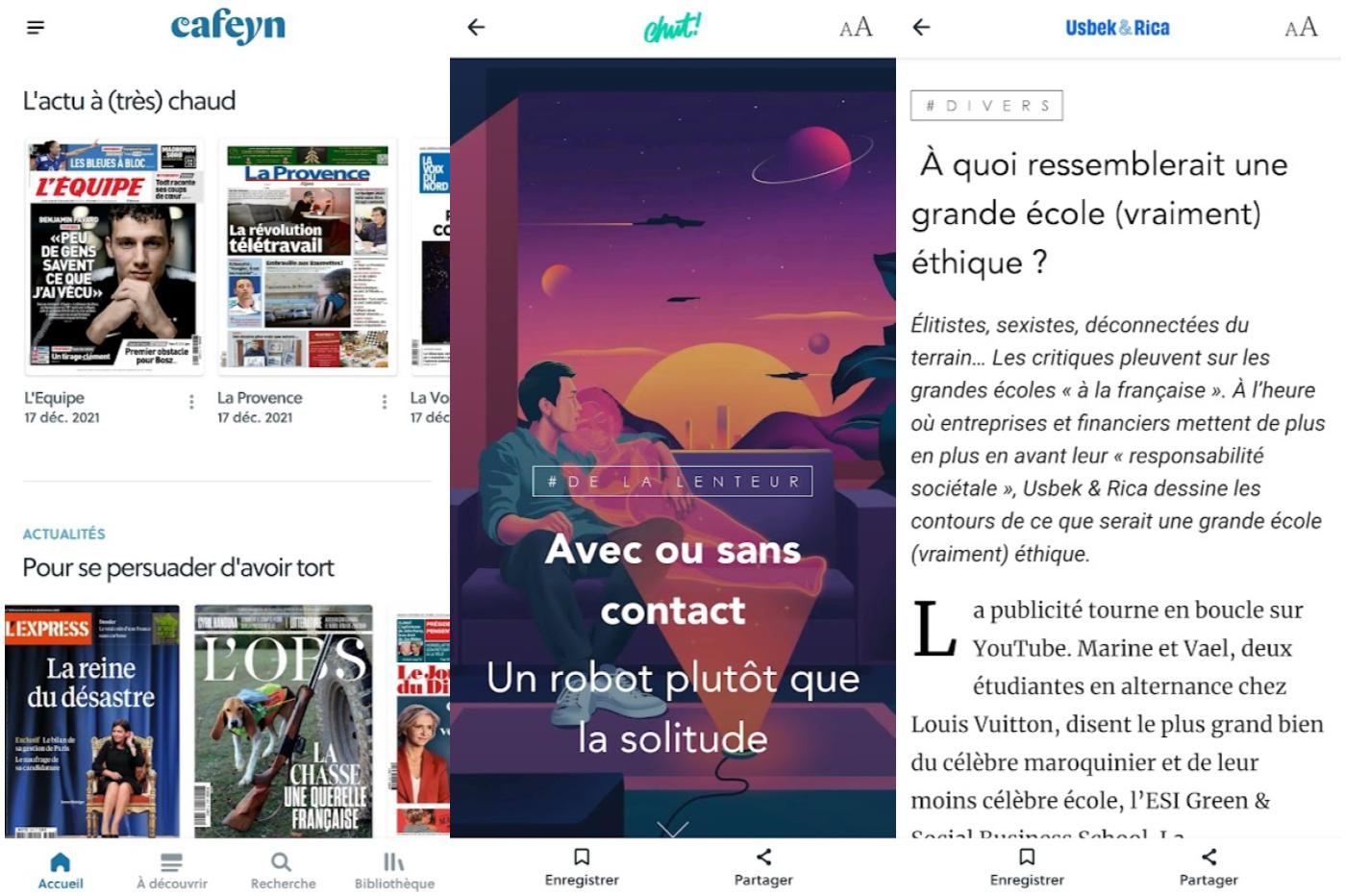
For those looking for a press aggregator capable of doing a little better than the classic Google News and Discovery, we particularly recommend the platform Cafeyn. Accessible from € 8.50 per month, this paid offer gives you access to more than 2,000 press titles free of charge, and unlimited. The opportunity to find great classics, such as The World, Liberation Where Le Figaro, but also more confidential and thematic journals, such as Hush! Where Usbek & Rica. There is something for everyone, and rather than increasing the number of paper magazines, the platform makes it possible to dematerialize and centralize all the titles that interest you in one space, no matter what group they belong to.
If you do not want to take the plunge into paid reading on the Internet yet, you can also opt for Feedly, a free content aggregator (a more extensive paid offer exists), which allows you to create your own watch lists based on your interests and the media you follow. For the rest, we can also pay tribute to the Pocket application, which allows you to seasily save web articles that you cross between two metro stops, and that you promise to read … a little later.
For historical texts
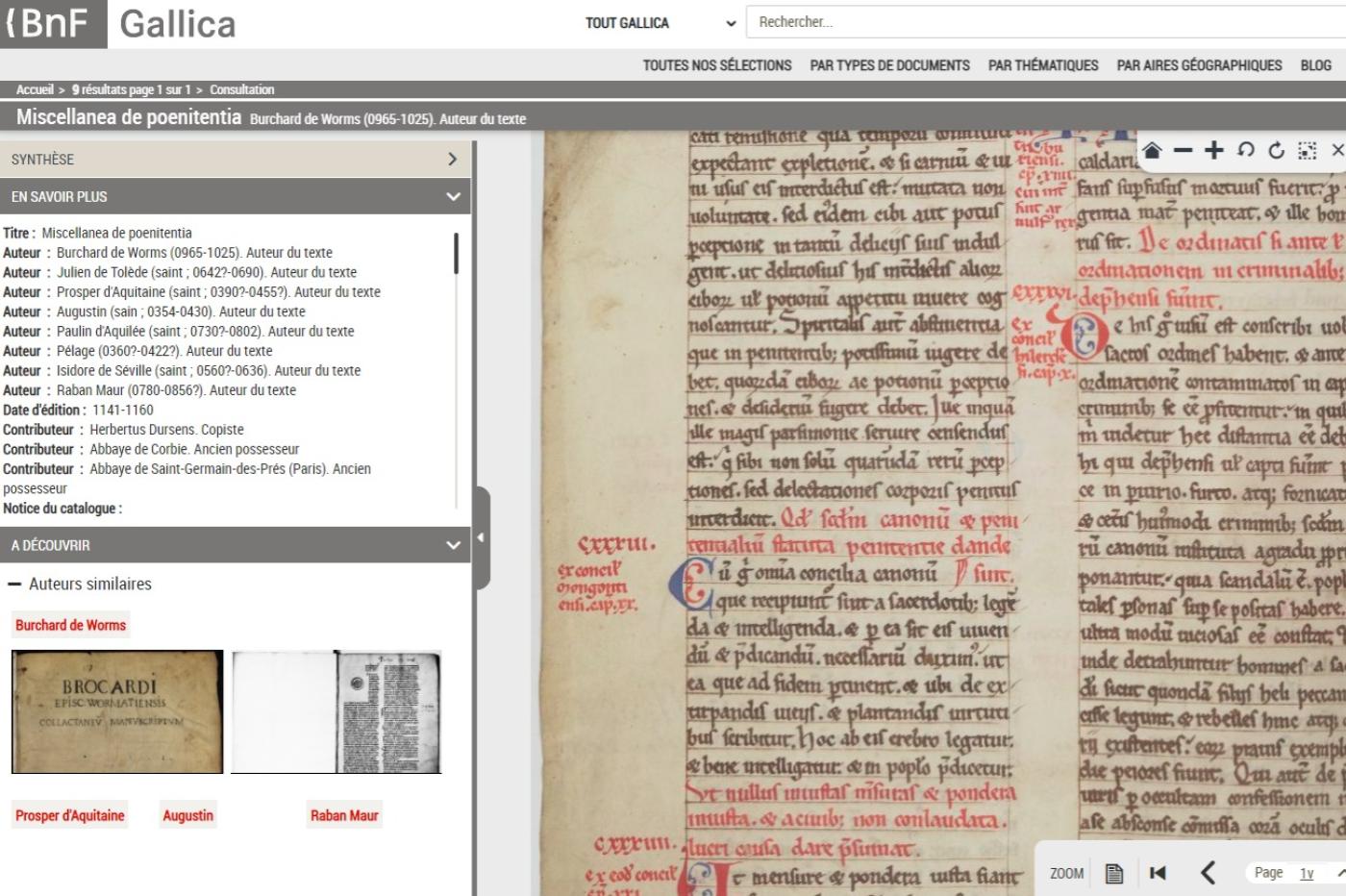
Whether you are a student, professional or just passionate, the BnF is a real gold mine for those looking for an old text. Thanks to his amazing Gallica digital library, the French institution benefits from one of the largest free literary collections on the web. Old books, ancient texts, philosophical and medical treatises, seventeenth century novels, scores or period newspapers, the BnF project has something to make you dizzy. It must be said that in addition to having taken the time to digitize several million documents, most of the referenced works also afford the luxury of a digital transcription, which greatly facilitates research if needed. A real gold mine in which it is easy (and pleasant) to get lost.
Why switch to digital reading?

The screen will never replace paper. Whether it is the sensation under the fingers or the tangibility of the object, we would personally have a hard time saying our goodbyes in book format. However, we must recognize the dematerialized several advantages, starting with the space saving on a shelf. Often cheaper than a real book, the digital format also allows access to texts not found in hard copy. As part of a survey or a university project, for example, it also makes it easier to organize your notes.
Obviously, reading in dematerialized mode also suffers from all the disadvantages of the genre. So it will often be impossible to lend your book to a friend once completed, and you will always remain dependent on a battery-powered device. For the eyes too, the lengthening of the reading time on screen could constitute a brake. On this point, however, do not worry: today, reading applications have made enormous progress in limiting blue radiation during reading. And if you still prefer to avoid screens, it is always possible to opt for an e-reader, much less aggressive on the eyes.
